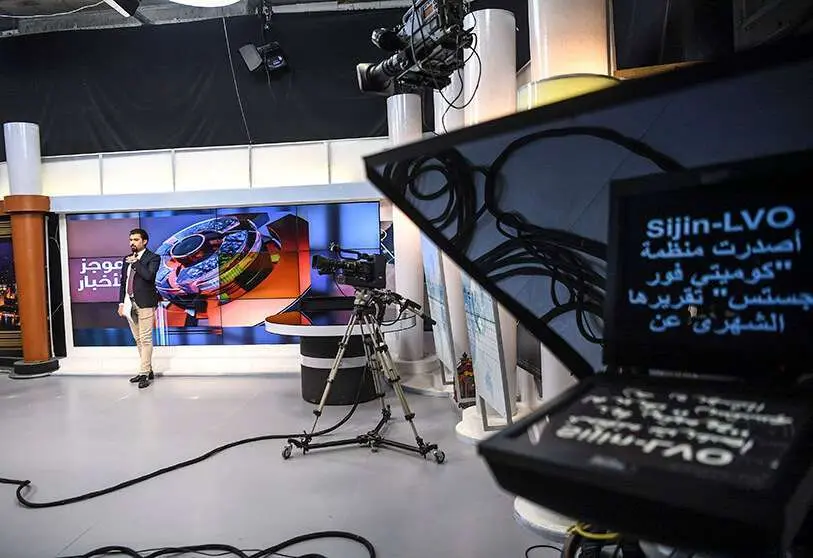Television and the race for ratings during Ramadan

As they do every year during Ramadan, television stations strive to produce the most captivating programmes to attract the maximum number of viewers. At this time of year, Muslims around the world turn to Arabic-language broadcasters at Iftar, the time when fasting is broken and the sun sets. More than 1,000 satellite channels, in addition to national digital channels, offer comedy, drama, soap operas, series and various public programmes.
If the choice is so varied, it is because advertising rates increase threefold during this holy period, so everyone goes there!
In this frantic race for ratings, all "tricks" seem to be allowed. Ramadan always comes under the sign of spectacle and hidden cameras are its trademark. This year the trend is confirmed, even if making people laugh often flirts with bad taste and scares.
In Morocco, the second national TV channel, 2M, is recording record results (up to 75% audience share) for its flagship programme "Mchiti Fiha", in which guests play at scaring wild and dangerous animals in a zoo.
But where the stupidity reaches its paroxysm is in Tunisia and following the same hidden camera procedures, an Angelina Jolie look-alike presents herself - as the American actress - as a UN goodwill ambassador to offer Tunisia a batch of vaccines against EVID-19. The ambush was set up when the guest who had just been vaccinated witnessed the death of an accomplice after being injected with the same vaccine.
In this period of vaccine mistrust and widespread concern, Nessma TV ignores all prudence and responsibility. The WHO was quick to react: "The media have a role to play in this area. But it is to be hoped that such a programme broadcast on a popular channel at a time of large audiences does not, on the contrary, by associating the vaccine with death or serious side effects, contribute to promoting scepticism, vaccine hesitation and conspiracy," writes the World Health Organisation's representative in Tunisia. The Tunisian Medical Association has also expressed its dissatisfaction, calling the programme "a serious threat to the (vaccination) campaign and likely to disrupt public perception of the vaccine".
If Ramadan is the time of year for fasting, it is also (and above all) the month when people eat the most. From morning to night, chefs and cooks of all kinds prepare high-calorie delicacies and tease the taste buds of the most austere fasters. In these digestive and often indigestible rides, the world's cuisines pass without leaving any room for dieting.
But that's not the end of it, the "visual appeal" of television must last beyond the lunch hour. And then comes the other must-see programme of the evening, the soap opera. It is an ancient tradition that has always been respected and widely financed and developed.
With the help of technology, satellite and digital broadcasts offer these series on YouTube for free sharing. In terms of drama, the current trend corresponds to the Muslim world's greatest concern: terrorism.
Egypt, one of the main producers of the series, has devoted itself to denigrating its worst enemy, the Muslim Brotherhood, and to reviewing their misdeeds in the country's recent history. The series El- Al Ikhtiyar 2 (The Choice 2) is inspired by real events and terrorist acts that shook Egypt between 2013 and 2014. From the massacres in the camps in Rabia-El-Adaouïa square, to the bloodiest operations in the Sinai. Supported by archival footage in an almost documentary style of writing, the action series is an anthology of explosions and heroic actions by Egyptian officers and to the glory of the Egyptian army.
The other standout series is undoubtedly Cairo-Kabul, which deals with the ramifications of jihadism and the Egyptian takfirist movements. Tarek Lotfi, the lead actor, appears on the film's poster as Bin Laden. Even before its broadcast, the soap opera provoked an outcry in conservative circles. But this Bin Laden is rather Egyptian, and although the resemblance to the real events is real, the scriptwriters deny any connection between the two. However, the show lacks punch and its treatment remains superficial and very didactic, the concern for balance does not seem to be a concern of the scriptwriters and the characters are Manichean and thin.
Alongside these moralising series that aim to educate, an animated UFO called Adam is chilling, and rightly so: scientific questions are taken over by the religious. Broadcast on YouTube, the animation presents an old sheikh who explains to young people the birth of life on earth, and it is not about dinosaurs and even less about the Big Bang theory, but about djinns and evil beings that populated the earth and the universe. Enough to make Darwin turn in his grave.

